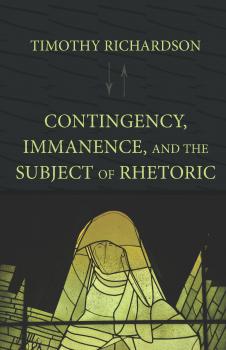ТОП просматриваемых книг сайта:















Lauer Series in Rhetoric and Composition
Скачать книги из серии Lauer Series in Rhetoric and CompositionАннотация
Recent archaeological discoveries, coupled with long-lost but now available epigraphical evidence, and a more expansive view of literary sources, provide new and dramatic evidence of the emergence of rhetoric in ancient Greece. Many of these artifacts, gathered through onsite fieldwork in Greece, are analyzed in this revised and expanded edition of Greek Rhetoric Before Aristotle. This new evidence, along with recent developments in research methods and analysis, reveal clearly that long before Aristotle’s Rhetoric, long before rhetoric was even stabilized into formal systems of study in Classical Athens, nascent, pre-disciplinary “rhetorics” were emerging throughout Greece.
Historical Studies of Writing Program Administration - Группа авторов
Lauer Series in Rhetoric and CompositionАннотация
Historical Studies of Writing Program Administration: Individuals, Communities, and the Formation of a Discipline collects essays that shine new light on the early history of writing program administration. Broad in scope, the book illuminates the development of the profession in the narratives of the individuals who helped form the discipline prior to the emergence of the Council of Writing Program Administrators in 1976, including those narratives of Gertrude Buck and Laura J. Wylie, Edwin Hopkins, Regina Crandall, Rose Colby, George Jardine, Clara Stevens, Stith Thompson, and George Wykoff. Drawing from deep archival work, these narratives offer rare glimpses into writing program administration and the development of composition as a college requirement.
Аннотация
Composing a Community is not only a history of early WAC programs but also of how the people developing those programs were in touch with one another, exchanging ideas and information, forming first a network and then a community. Composing a Community captures the stories of pioneers like Elaine Maimon, Toby Fulwiler, and others, giving readers first-hand accounts from those who were present at the creation of this new movement. David Russell’s introduction sets this emergent narrative into relief. Susan H. McLeod and Margot Iris Soven, themselves pioneers in WAC history, have assembled some of its most eloquent voices in this collection: Charles Bazerman, John C. Bean, Toby Fulwiler, Anne Herrington, Carol Holder, Peshe C. Kuriloff, Linda Peterson, David R. Russell, Christopher Thaiss, Barbara E. Walvoord, and Sam Watson. Their style is personal, lively, and informal as the authors succeed in putting their personal memories in the larger context of WAC studies.
Аннотация
First-Year Composition: From Theory to Practice’s combination of theory and practice provides readers an opportunity to hear twelve of the leading theorists in composition studies answer, in their own voices, the key question of what it is they hope to accomplish in a first-year composition course. In addition, these chapters, and the accompanying syllabi, provide rich insights into the classroom practices of these theorists.
Аннотация
Ancient Non-Greek Rhetorics contributes to the recovery and understanding of ancient rhetorics in non-Western cultures and other cultures that developed independently of classical Greco-Roman models. Contributors analyze facets of the rhetorics as embedded within the particular cultures of ancient China, Egypt, Mesopotamia, the ancient Near East more generally, Israel, Japan, India, and ancient Ireland.
Информация о книге
Автор произведения Группа авторов
Аннотация
Political fights are not waged over who is speaking the truth but over whether any given claim seems to be authentic. Expel the Pretender: Rhetoric Renounced and the Politics of Style examines how rhetorical style influences judgments about how to communicate integrity and good will. Eve Wiederhold argues that attitudes about style’s significance to judgment are both undertheorized and over-determined, especially when style is regarded as an embellishment rather than as a constitutive aspect of language use. Examining news reports covering controversial speakers including President Bill Clinton, Linda Tripp, and the Rev. Jeremiah Wright, she demonstrates how rhetorical style is both belittled and yet remains a focal point for assessing public figures who have been publicly rebuked and discredited. Expel the Pretender claims style as a conflicted site of materiality, critiquing contemporary rhetorical theories that configure style as a dependable resource for democratic inquiry. Wiederhold argues that conceptions of style’s significance to judgment must be reframed to understand how we make decisions about who and what to believe.
Аннотация
Through extensive interviews, correspondence, and close analysis of their public and personal writing, Roy F. Fox details why and how writing helped people make sense out of their physical and emotional upheavals, trauma caused by the loss of loved ones and terminal illness, exploring such issues as their motivation, fluency, awareness of audience, rhetorical decision-making, focused collaborations, and uses of secondary source material.










